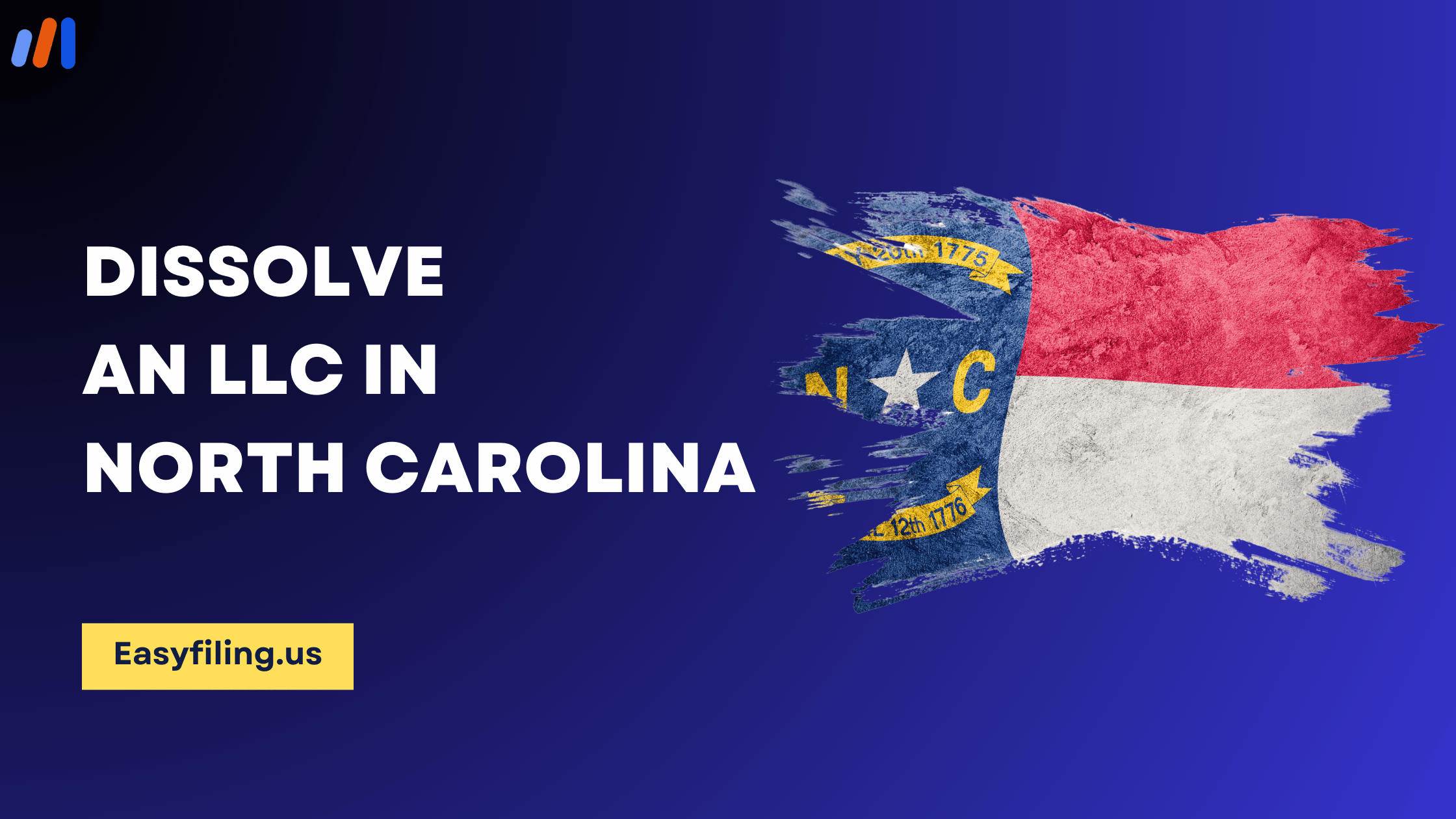The demand to start a Business in the USA attracts thousands of international business owners each year. With its extensive consumer market, stable judiciary, and technology–driven economy, the U.S. is a destination of choice for anyone who wishes to develop their business worldwide.
But how do you, as a non-resident, register a US business? Do you need a visa? What kind of company should you incorporate? In this comprehensive guide from Easyfiling, we‘ll walk you through everything you need to know in order to set up a business in the USA—from legal structure to EIN acquisition and visa strategy.
A Guide to Starting a Business in America as a Non-Resident
The good news is, you don’t need to be a U.S. citizen or a green card holder to open a business in the USA. The majority of foreign nationals have thriving businesses in the U.S. without living here full-time.
But while the U.S. does not require citizenship to include a business, there are regulations and taxation laws that non-residents must be aware of. These include understanding your visa needs, selecting a suitable business type, and being IRS compliant.
What Kinds of Corporate Entities Can I Open in the US as a Non-Resident?
Foreigners looking to start a business in the USA typically choose between two popular entity types:
1. Limited Liability Company (LLC)
- Easiest to set up
- Flexible management structure
- Pass-through taxation (income taxed once)
- No residency requirement for members or managers
2. Corporation (C-Corp)
- Ideal for attracting investors and venture capital
- Suitable for tech startups or large enterprises
- Double taxation (on profits and shareholder dividends)
- Requires compliance with corporate governance
Note: While S-Corps are popular with U.S. residents, they’re not available to non-resident aliens.
Will I Need a Visa to Open a US Business?
No, you do not need a visa to register a company or be the owner of a company in the United States. You can remotely start a business in the USA, operate the business, and handle finances when you are abroad.
However, if you want to stay in the U.S. and actively participate with your firm, you will need a valid visa that permits work or business management activities.
Visa Options for Opening a Company in the US for Non-Residents
There are several visa categories available for entrepreneurs, depending on your business goals and country of origin.
1. E-2 Treaty Investor Visa
- Allows you to live in the U.S. to manage your business
- Requires “substantial” investment in a U.S. enterprise
- Only available to citizens of countries with a U.S. treaty (e.g., Canada, UK, Japan, Germany)
2. L-1 Visa (Intra-Company Transfer)
- For foreign companies opening a U.S. branch or subsidiary
- Allows executives or specialized staff to transfer to the U.S.
3. O-1 Visa (Individuals with Extraordinary Ability)
-
Suitable for entrepreneurs with a track record of innovation or business leadership
4. EB-5 Immigrant Investor Visa
- Requires a minimum investment of $800,000 in a U.S. business
- Leads to a green card if job creation and other criteria are met
At Easyfiling, we help you connect with immigration attorneys who specialize in business-related visa applications.
E-2 Visa Alternatives
If you’re not eligible for the E-2 visa, here are viable alternatives to consider:
- L-1 Visa if you already have an overseas company
- B-1 Visa for temporary business visits (not for managing a business full-time)
- H-1B Visa if you’re employed by your own U.S. company (requires third-party sponsorship)
- EB-2 NIW (National Interest Waiver) for entrepreneurs with advanced degrees and a scalable business plan
Understanding these visa alternatives is key to aligning your immigration goals with your business strategy.
What Is the Process for Registering My Company as a Foreigner?
The process to start a business in the USA as a foreigner includes a few key steps:
- Choose a Company Structure (LLC or C-Corp)
- Select a State to Register In
- Appoint a Registered Agent (required in most states)
- File Formation Documents (Articles of Organization or Incorporation)
- Apply for an EIN (Employer Identification Number)
- Open a U.S. Business Bank Account
- Comply with Federal and State Taxes
Choose a State to Register Your Company In
Each U.S. state has different tax laws and business regulations. Some states are more favorable for non-residents due to lower fees and less bureaucracy.
Top Choices for Foreign Founders:
- Delaware: Known for its business-friendly laws and strong legal protections
- Wyoming: Offers low filing fees and no state income tax
- Florida: Popular for non-residents due to favorable taxes and international accessibility
Where Else Can I Find Help on How to Start a Business in the USA for Foreigners?
- U.S. Small Business Administration (SBA)
- IRS.gov for tax rules and EIN application
- Local U.S. Chambers of Commerce
- Immigration attorneys for visa-related concerns
Choose Your Company Structure
The structure you choose affects how your business is taxed and managed.
LLC Pros:
- Simpler and cheaper to run
- Great for small to mid-size businesses
- Profits are taxed only once
C-Corp Pros:
- Ideal for scaling and raising capital
- Easier to offer stock to investors
- Seen as more “legit” by VCs and banks
Obtain an Employer Identification Number (EIN)
An EIN is required to:
- File U.S. taxes
- Open a U.S. business bank account
- Hire employees
- Apply for business licenses
Foreign owners need to apply for an EIN with IRS Form SS-4, which is a complicated process. With Easyfiling, we complete the entire EIN application on your behalf—even without a Social Security Number (SSN).
FAQs: Starting a Business in the USA
Q1: Am I able to start a business in the USA even if I do not live in the USA?
Yes, definitely. You can own and run an American business even if you do not live in the USA, as long as you follow IRS and state guidelines.
Q2: Do I need a visa to start a U.S. business?
There is no visa requirement for business registration. But if you want to live and work in the U.S., you will need the corresponding visa (e.g., E-2 or L-1).
Q3: Which state is most suitable for foreigners to register a business in?
Delaware, Wyoming, and Florida are among the most popular due to favorable tax legislation and business regulation.
Q4: Can Easyfiling help with bank accounts for a business?
Yes. Even though non-residents may be challenged, we support and refer you to banks that welcome international founders.
Q5: How much time does it take to set up a business in the USA?
Typically, you can get your company set up and EIN allocated within 7–14 business days with Easyfiling.
Ready to Start a Business in the USA? Easyfiling Makes It Simple
If you’re planning to start a business in the USA as a non-resident, don’t let paperwork or bureaucracy slow you down. At Easyfiling, we help global entrepreneurs:
- Register LLCs or Corporations
- Get EINs without SSNs
- File U.S. compliance documents
- Explore visa options through legal partners
With our all-in-one formation service, you can focus on building your brand while we handle the formalities.
Ready to start a business in the USA without confusion or delays?
Click here to get started with Easyfiling and launch your American dream today.
File Your LLC Today
25$ off with a coupon
Lock in EasyFiling's transparent rates and get lifetime compliance support at no extra cost.
Get Started Now







